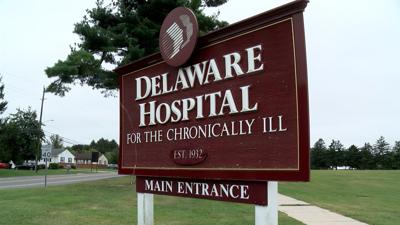SMYRNA, DE- On Thursday, state leaders, community members, and hospital staff broke ground on the new Delaware Hospital for the Chronically Ill, which will replace the decades-old facility in Smyrna.
The Delaware Hospital for the Chronically Ill, a state-run long-term care facility with a five-star rating from the Centers for Medicare and Medicaid Services, has operated on Sunnyside Road since 1961.
Geraldine Stewart, the hospital's director, says the aging facility and outdated equipment no longer meet modern health care needs and create daily challenges for staff.
"Our dietary department is in one area, physical therapy in another, and our beauty shop in another. To get residents there, you have to take them out of the units and move them back and forth in the elements."
Dava Newnam of Delaware Health and Social Services emphasized the need for a modern facility to maintain high-quality care.
"These residents and staff deserve a facility and a home that matches the level of care we provide here at DHCI."
The new three-story hospital will have 120 beds and consolidate essential services, including occupational and physical therapy, under one roof.
The facility will also include two courtyards, a canteen, expanded parking for staff and families, and other amenities designed to improve the experience for both staff and patients.
The new hospital will be organized into five residential neighborhoods, moving away from a traditional institutional model to create a resident-centered, homelike environment.
Delaware Health and Social Services Secretary Josette Manning says giving patients a sense of home while they are away from home is one of the most important aspects of the new hospital plan.
"They will be organized into five neighborhoods. That gives it more of a community feel. It enables staff to know the residents better, residents to know each other better, and really fosters a sense of community."
Manning says fostering a sense of community is especially important for patients during their most difficult days—a need the current facility cannot meet.
"Most of them will not go somewhere else or live in a typical home. This is their home. To hear about all the wonderful things it's going to have—it's just a great day."
Officials say the $90 million project, funded through ARPA funds, Delaware Bond Bill Capital Improvement Committee funding, and Congressionally directed spending, is expected to be completed by 2027.


